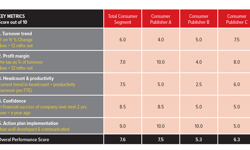
The Future of Writing is Talking
The late A.A. Gill was in the habit of dictating his columns because his dyslexia meant he couldn’t do it the traditional way. Bill Prince of GQ has written a piece about how he did it every month and how he hardly needed to change a word. Gill had a remarkable skill. However, you no longer need the services of a copy-taker like Bill to be able to do the same thing. Likely as not, the machine on which you’re likely as not reading this – it seems no longer helpful to call them mere computers or phones or tablets – is ready to take dictation from you and to quite efficiently convert what you say into words and spaces.
You’ve probably noticed that Big Tech is trying to encourage you to navigate life without a keyboard. You’ve probably made up your own mind about how you feel about calling on the services of Alexa or Siri or any of the other personal assistants with Doctor Who sidekick names with which Amazon or Apple encourages us to interact. One of the main inhibiting factors around voice activation is that most adults have a natural disinclination to be caught talking to somebody who isn’t there (particularly somebody with a woman’s name.) No doubt, this inhibition will in time go away, as it did in an earlier era when the telephone was first introduced.
As for dictating copy to your computer, don’t roll your eyes and say you’ve tried it. The thing about technology is it keeps on getting better. You shouldn’t ever assume that because you tried something when it first came out and found it wanting that it’ll be the same a few months later. When I first tried to dictate something to my Mac and have the words reproduced on the screen, the results were much as they would have been if I’d put on a pair of boxing gloves before starting to type. (Type? There’s another word that no longer seems equal to the function it describes.)
I returned to the voice interface in the last year and couldn’t believe how much improved it was. It needs to accustom itself to your voice so the more you use it, the better it gets but it’s come on leaps and bounds in the last year or so thanks to “deep learning”. This means that systems are trained using millions of different examples culled from all over the internet, rather than just yours. You’ll have to go over it afterwards and correct and polish but you won’t be trying to impose order on a mass of gobbledegook. With a bit of luck, by that time you’ll have the comforting feeling that the heavy lifting part of the work has already been accomplished. I won’t attempt to give you a guide to how to get it working on your system. I’m assuming that all the different software manufacturers are keeping pace with each other so your system is bound to have some kind of solution. There’ll be a little microphone icon somewhere on your keyboard. Take it from there.
There’s a lot to be said for dictating to your computer, particularly if you express yourself in a declamatory way. There’s a long tradition of this. Gentlemen writers of the Victorian era, such as Henry James, used to dictate because the actual writing was servants’ work. Churchill dictated throughout his life, leaving his hands free for the important business of holding a drink in one and a cigar in the other.
It helps you avoid clumsy and convoluted construction. It makes you hold clear thoughts in your head and organise them in such a way that they build to a point. It goes without saying that if you’re writing something which is ultimately intended to be spoken, you should start by speaking it. It suits anybody who finds that their brain works best when they’re standing. It makes you compose in a different way. It forces you to compose complete sentences before committing them to the page. It tends to result in paragraphs where all the sentences start in the same word. It may be the future.
Dead famous
Did more famous people die in the year 2016 than in any other year? I’ve read more than one pseudo-scientific survey of the phenomenon. The BBC’s obituaries editor did his own and he decided that, yes, there was something to it. I’m not convinced. The reason I’m not convinced is I’ve spent the bulk of my working life in an industry where I was actively engaged in the business of inventing new famous people. The media explosion of the last fifty years has been responsible for throwing up more names who enjoy some kind of familiarity with the general public than ever before. A hundred years ago, people only knew the names of people with whom they had had some kind of direct interaction. Nowadays, we’ve got heads so full of erstwhile pop crushes, scandalous soap stars, middling alternative comedians, eccentric TV chefs and colourful dictators, none of whom we have ever met, that there’s hardly room for the people we have.
If you don’t believe me, take a piece of paper and write down the names of all the pop stars or footballers you can remember from your youth. I would be surprised if you couldn’t get to a hundred. Social media transforms the passing of any of those names with a bogus urgency. Everybody feels that the event is not properly marked until they’ve paid their personal tribute, which means that all deaths are bigger stories a day after they occurred. Then the traditional media – TV and newspapers – regard paying tribute as one of those things they still do well and thus they pile in and fill their boots. Plus, there’s a cultural disinclination to say that we haven’t heard of the person that everybody is talking about and to admit that they didn’t play a very special part in our lives and we can’t pretend to be seriously broken up about it. As long as that continues to be the case, we’ll be marking more famous deaths this year than we did last year, no matter what the statisticians say.
Trump marketing
Vanity Fair said a restaurant in Trump Tower “could be America’s worst”. I love that “could be”. It makes you root for the place, to hope that it achieves that very special honour. This inevitably meant that the president-elect had to have a go back via his weapon of choice – Twitter – and to accuse the magazine’s numbers of being very weak and suggesting that editor Graydon Carter might be on his way out as a consequence. More qualified men than Trump have been trying to work out how glossies like Vanity Fair keep their heads above water.
It’s impressive that with one application of his X-ray vision, he’s seen through to the reality. Vanity Fair shrewdly realised that this dis-testimonial could be valuable and turned it into part of their subs sell. “Subscribe to the magazine that Trump doesn’t want you to read” etc. Smart move. This will inevitably lead to a lot of other magazines taking aim at various different elements of the Trump phenomenon – his family, his empire, his golf courses, the hotels that carry his name – hoping that he’s going to find time among his busy daily round to give them a namecheck in a similarly disobliging fashion and thereby increase their profile. He probably will. He certainly won’t read them.
Throwing good money after bad?
As I complete this column, it looks like Future have stepped in to buy back the Team Rock magazine brands from the administrators. I felt sorry for the people who were made redundant in the collapse of Team Rock, particularly the ones who didn’t get their final month’s pay. I also felt sorry for the original management who tried to bring their vision of a profitable community around rock to life. They tried a different approach, as many have been urging from the sidelines, and it didn’t work. I also felt sorry for the investors who ploughed a lot of money into the enterprise over a long period of time. Finally, I felt really sorry for whoever supplied the two million that was invested in the Scotland-based business by Scottish Enterprise only a matter of months ago. Or would that be tax payers like you and me?












